On June 10, 2024, Naidu was appointed Minister of Civil Aviation. Naidu is the 33rd Minister of Civil Aviation, having assumed office in June 2024.
India’s aviation market has undergone significant transformation in recent decades as a result of increased passenger volume, infrastructure expansion, and government changes.
A young 37-year-old Civil Aviation Minister may make a huge difference in a developing country like India, as well as the ever-expanding tourism, travel, and, by extension, aviation business. For all of you aviation enthusiasts, Mr Naidu’s face will definitely emerge in the news from time to time.
Civil Aviation Minister of India
Ram Mohan Naidu, 37, is the youngest minister in the Union Cabinet. The first-time minister is in charge of India’s thriving civil aviation sector, which has effectively become a duopoly between IndiGo (6E) and Air India.
In an interview with Vinay Pandey at the ET India Ascends event in November, Naidu claimed that he does not want to encourage a duopoly and intends to make it easier for airlines to establish operations in the country.
His beliefs and ideas have gained widespread coverage in the mainstream media. However, few people are aware that Kinjarapu Ram Mohan Naidu’s political career began by accident. The year was 2012. In this post, we’ll talk about his personal and political journeys.
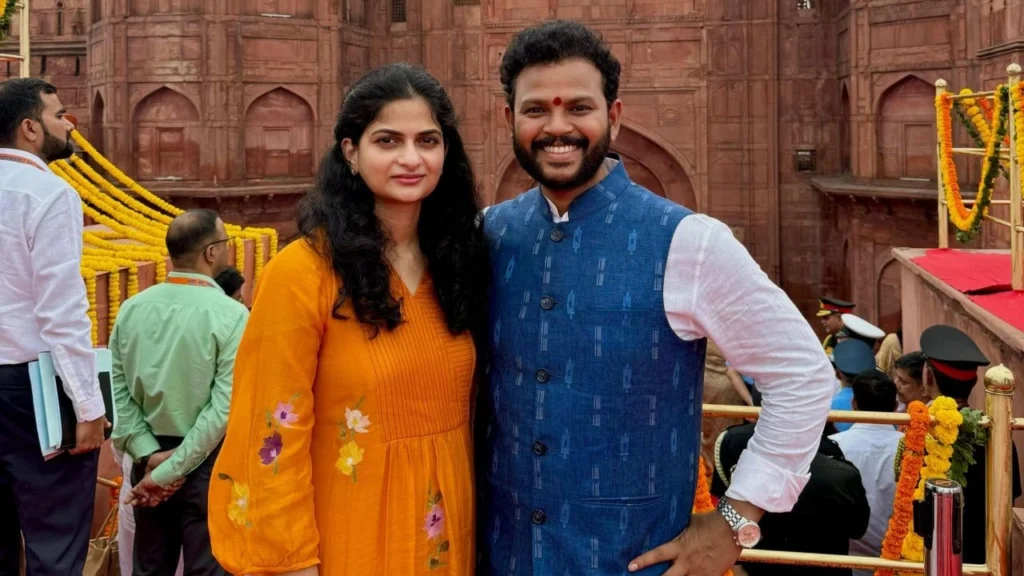
Early Life
Naidu was born in Nimmada, Srikakulam. He is the son of Telugu Desam Party member Kinjarapu Yerran Naidu and Kinjarapu Vijayakumari.
Prior to becoming a Member of Parliament (MP) from Srikakulam, his father served in the Legislative Assembly (MLA) from the Tekkali constituency. From 1996 to 1998, his father served as Union Minister for Rural Development under the United Front administration.
Naidu completed his elementary education at Srikakulam and later attended Delhi Public School in R. K. Puram, Delhi, after his father became an MP and moved to Delhi.
He went on to earn a bachelor’s degree in electrical engineering from Purdue University in the United States and an MBA from Long Island University. He worked in Singapore for a year before returning to India.
Personal Life
In June 2017, Naidu married Sravya Bandaru, the youngest daughter of Telugu Desam Party Vice President and former minister Bandaru Satyanarayana Murthy.
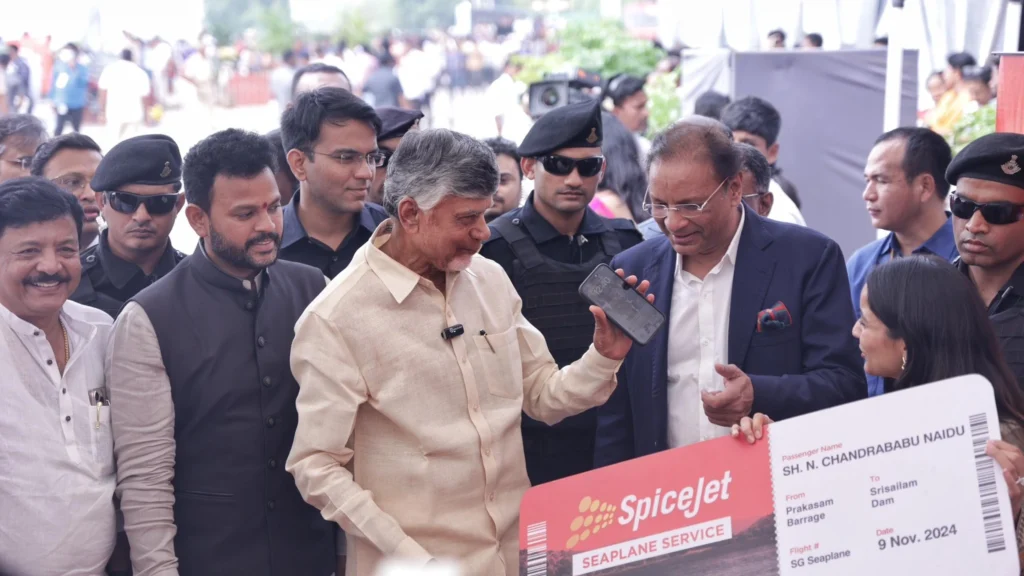
Ram Mohan Naidu’s Unexpected Entry into Politics
Kinjarapu Ram Mohan Naidu, 37, became involved in politics after an accident. The year was 2012.
Ram Mohan Naidu was working in Singapore in 2012 when he received a phone call from India alerting him that his father, Kinjarapu Yerran Naidu, had died in a traffic accident. He raced back to India and never truly left.
Naidu contested for the TDP in his father’s Srikakulam constituency in 2014 and was elected as MP at the age of 26. He won again in 2019 and the most recent 2024 election, defeating the YSRCP candidate by 320,000 votes.
Naidu had no intention of becoming a politician, yet he accepted the role. As a Member of Parliament, he was active. He sat on several standing committees, including agriculture, animal husbandry, food processing, railways, home affairs, tourism, and culture.
In Parliament, he advocated strongly for menstrual health and sex education, as well as the abolition of the Goods and Services Tax on sanitary napkins.
He established ‘Politics for Impact’, an internship for students, since he believes that youth can play a vital role in politics and solving people’s problems. Selected students will work in their constituencies for two months.
Participation in the United Nations (UN)
Ram Mohan Naidu represented India in the United Nations General Assembly’s 22nd First Committee on Disarmament meeting.
He underlined India’s commitment to upholding the UN Charter’s values and promoting international peace via multilateral cooperation. When representing India at the United Nations, he emphasized the importance of nuclear disarmament and nonproliferation efforts.
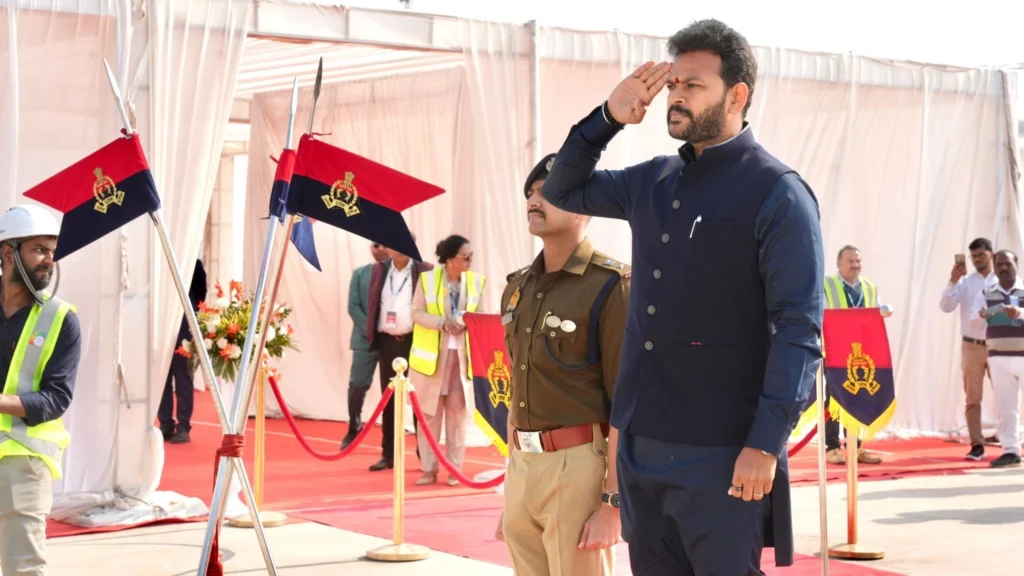
Appointment as Civil Aviation Minister
On June 10, 2024, Naidu was appointed Minister of Civil Aviation. Naidu is now the 33rd Minister of Civil Aviation, having taken office in June 2024.
He represents the Srikakulam Constituency in the Lok Sabha and was elected in the 16th, 17th, and 18th Lok Sabha sessions. He is the TDP’s National General Secretary and Lok Sabha Leader.
Naidu described his vision for his ministry and the Civil Aviation industry, emphasizing that passengers will be at the “core” of all policies and actions. MoCA will also prioritize improving air connection to tier 2 and tier 3 cities and towns, as well as distant places, and will work closely with states on this problem.
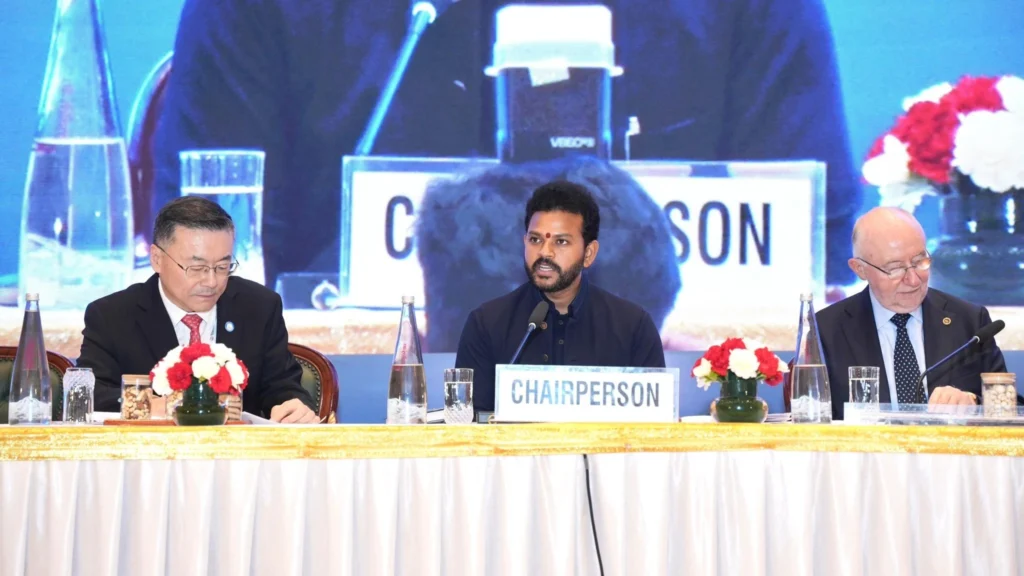
The New APMC (Asia-Pacific Ministerial Conference) Chairman
Kinjarapu Rammohan Naidu was unanimously elected chairperson of the 2nd Asia-Pacific Ministerial Conference (APMC) in Delhi in September 2024, less than three months after being appointed Union Minister.
Representatives from 40 member nations endorsed his leadership after Singapore nominated him and Bhutan supported him.
In his acceptance speech, Rammohan Naidu expressed gratitude for the honor and promised to work to promote accessibility in the aviation sector across member countries.
He emphasized the importance of Asia-Pacific collaboration in making civil aviation more user-friendly and strengthening international transportation linkages.
The conference aims to promote projects that will bring the benefits of air travel closer to the general public, as well as to address challenges faced by the regional aviation industry.
Rammohan Naidu’s leadership is expected to drive progress toward these aims.
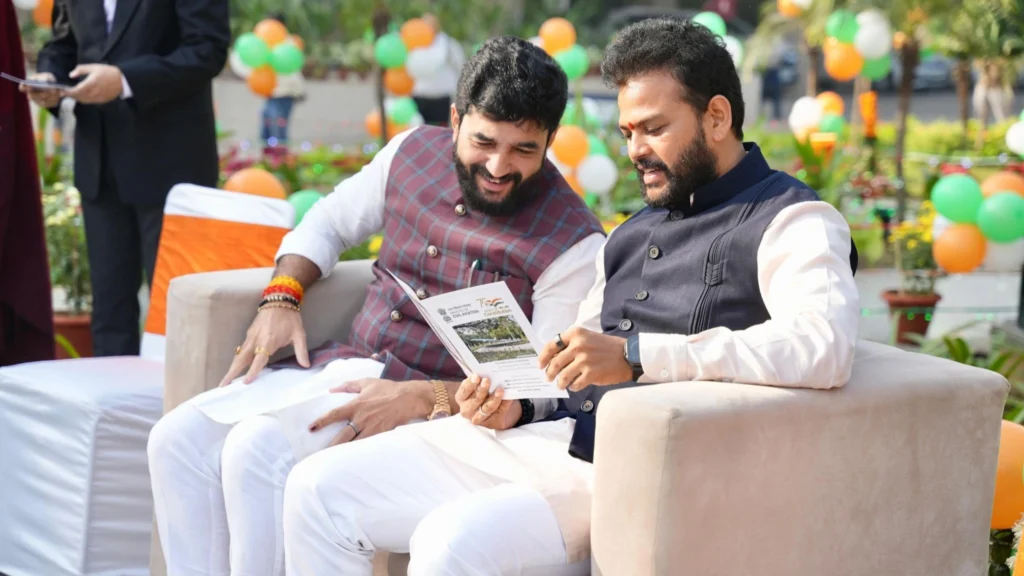
The passing of the Bill- Bharatiya Vayuyan Vidheyak, 2024
In early December, the Rajya Sabha passed legislation to alter the Aircraft Act of 1934, allowing for aviation manufacture and maintenance, eliminating redundancies, and simplifying commercial operations.
The Bharatiya Vayuyan Vidheyak, 2024, aims to provide for the design, manufacture, and maintenance of aircraft and related equipment, to empower the Central Government to regulate the issuance of Radio Telephone Operator (Restricted).
Certificates and Licenses to facilitate business, and to make rules to implement the Convention on International Civil Aviation and other civil aviation security issues.
“If you look at the true sense of why we want to promote aviation why we want to make it one of the best sectors in the country, in the whole world, because when we talk about aviation we talk about tourism, when we talk about aviation we talk about economic activity, when we talk about aviation we talk about real estate growth, we talk about job creation. When we talk about aviation we talk about industry…that is why aviation is a very important nodal sector that needs to be given that push.”
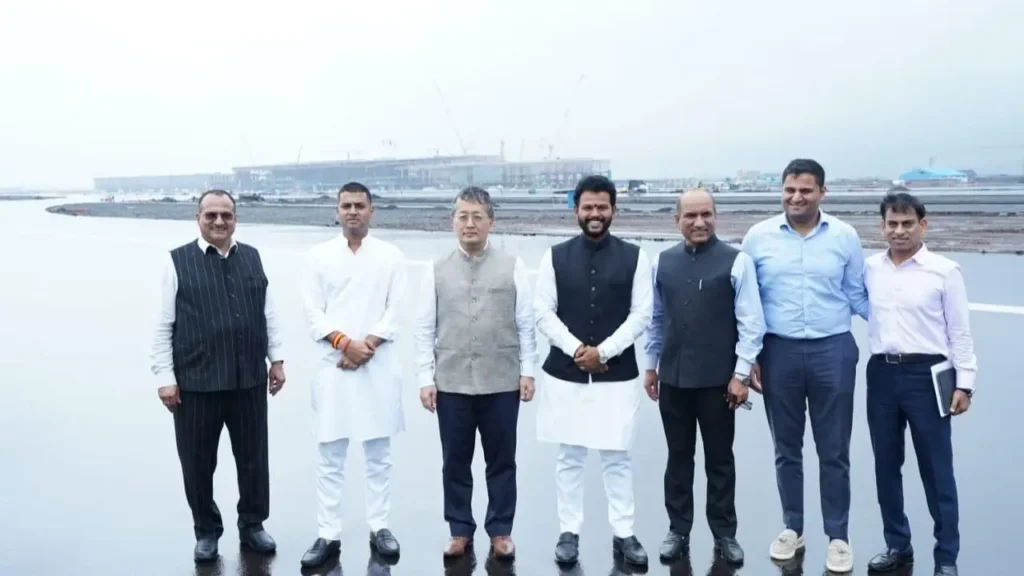
Other Civil Aviation Projects implemented
To summarize, some of the key aviation projects started under Naidu’s leadership are as follows:
- Expansion of Airport Infrastructure: The government set aside $11 billion for new airport construction and enhancements to current facilities, bolstering the rapid rise of aviation traffic. India now has 157 airports, with plans for further expansion, including the Bhogapuram Airport, which is slated to open in December 2025.
- UDAN Scheme: The Regional Connectivity Scheme (UDAN) has increased its network to 538 routes, making air travel easier in neglected areas. This effort mixes helicopters, seaplanes, and wide-body aircraft to improve domestic and regional connections.
- Focus on MRO (Maintenance, Repair, and Overhaul): Policy reforms, such as a uniform 5% GST rate on MRO components and prolonged import timeframes, have positioned India as an emergent MRO hub. These reforms aim to lessen reliance on foreign maintenance facilities while increasing local jobs.
- Sustainability and Green Energy: India has made strides toward sustainable aviation, with 73 airports currently running on renewable energy. Initiatives also focus on sustainable aviation fuel and carbon neutrality, as demonstrated by Cochin International Airport, the world’s first completely solar-powered airport.
- Affordability and Regional Development: The minister emphasized lowering airfares and promoting air connectivity to Tier 2 and Tier 3 cities. This involves implementing DigiYatra for biometric-based rapid check-ins at minor airports and promoting additional regional airline operations.
- Indo-French Aviation Collaboration: Naidu strengthened international ties by signing agreements with France to boost technology exchange and investment in sustainable aviation.
These measures are consistent with India’s goal of becoming the world’s largest domestic aviation market while making air travel more accessible and environmentally friendly.
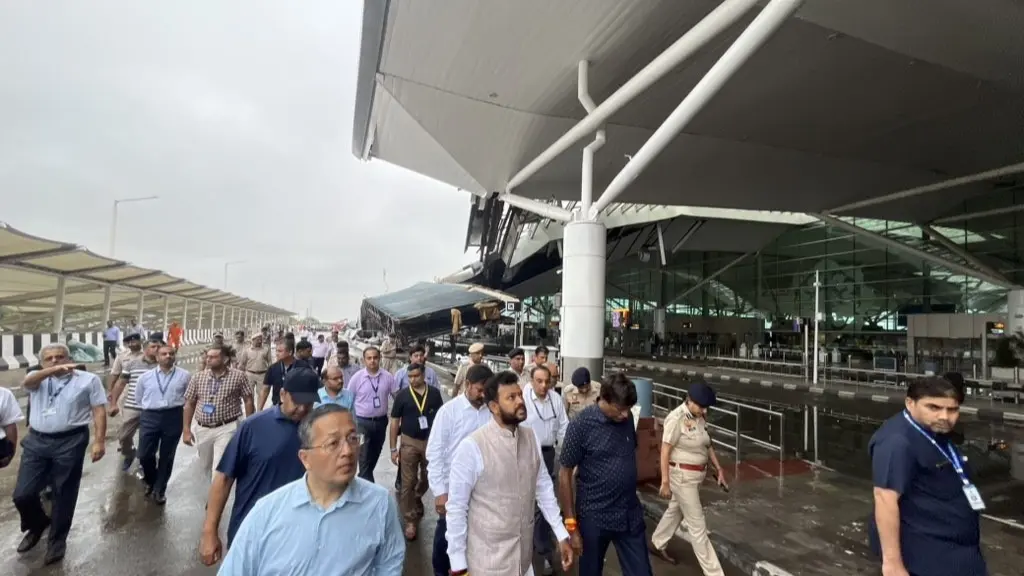
Bottom Line
Ram Mohan Naidu has already proved his leadership talents in just six months since his appointment in June 2024, at a time when the aviation industry is witnessing significant expansion.
From being completely disengaged from politics to unexpectedly becoming involved, he took his leadership seriously and, at such a young age, has implemented significant changes that a New India will require in the future.













Leave a Reply